- You are said to be the person who invented the hashtags for 100Lives project that became so famous – #BeArmenian, #BeAlive. What was the main idea behind #BeArmenian, #BeAlive?
-Well, the original idea was to just say #BeArmenian and my concern about that was that for Armenians that means many different things and for non-Armenians it doesn’t mean a whole lot. So I thought that since we were appealing to a broad group of people we needed to have some direction to what it means to us to say #BeArmenian.
Survivors often survive by hiding or in a way as to stay neutral not to be noticed. We (Ruben Vardanyan and I) have always thought that we need to do more than survive. We kept facing challenges one after another, so we needed to find strength and the spirit to survive. We arrived at the conclusion that the result of surviving is a second chance, and hopefully, over time Armenians and non-Armenians consider being alive the badge of honor of people who survive and want to do something to help prevent from going through the same trauma or contribute to the world or be the best they can be.
- There were a lot of commemoration events during 2015 and you played a huge role in organizing events in Washington in May. But don’t you think we are lacking the main thing – we are not discussing what we’ll be doing during the next 15, 20, 40 years?
- First of all, I would say the following: I think the Centennial commemorations have been surprisingly better than anybody expected. I say that because I was involved in many discussions over the years where many people thought that Armenians and the state would not be able to organize a reasonable, honorable and world-class set of events that would be appropriate. While I am sure we could have done better, it has gone tremendously well in terms of getting world attention allowing Armenians to also feel the moment and feel somehow connected to that history. We did better than expected.
Now what will we do with this momentum and how will we avoid losing this advantage that we have so far? As for going forward I absolutely think this is a major issue for us; the reaction of the world to this issue and the sympathy of many places of the world reveals more goodwill than many people thought we had. We need to build on that. I also think that projects like 100 Lives and others need to come forward and give voice to a different narrative having to do with the survival and the heroism of people who helped us, and give Armenians a cause of prevention and of communication of what this is all about, even mentoring and teaching others who are going through a similar path of recovering from such trauma.
Armenians could be, for example, very good role models of what it’s like to Rwandans, to Sudanese, to different people who are going through this. So Armenians can serve as role models, which is a very important step for us because that will also allow us to heal and find a new meaning in our experience.
2015 is kind of a birthdate of the next century. On April 24, I was in Yerevan saying to various people that next year, April 24, 2016, should be the first anniversary of the age that comes after the Centennial and with 100 Lives and Aurora Prize we will commemorate 100 years of survival a year later. We have taken a road to get back on our feet, to do the things that we want to do and we should take advantage of that to commemorate a milestone, not a 101st anniversary of the Genocide. This is what we as Armenians should have a discussion about.
The modern state of Turkey was formed in 1923 and I am sure they will want to hold a 100th anniversary of that, and when it comes up, it should be a period of time between now and then. We should work on this topic of denial, of justice, of survivorship, of heroism because that’s the period, that will mark for us the 100th anniversary of denial because the modern state of Turkey, which is what the current government is representative of, started denying this from the day it was formed. So you not only have a 100th anniversary of the Genocide but also 100 anniversary of denial. You might say who cares about this? I guess it should be meaningfully part of the world’s psyche and the world’s discussions for the next eight years anyway on this vector.
- This series of interviews have made me arrive at the conclusion that everybody accepts the idea that Armenia, Diaspora, and Armenians all over the world need to talk to each other and have a better dialog, which lacks today. Do you think that some kind of formal platform or organization could make this dialog possible or when something gets too official, it does not produce good ideas? We are having Armenia- Diaspora forums once in two or three years, but it they do not produce anything related to the future.
- Discussion forums are fine but we have a lot of issues to deal with, right? I’ll tell you a couple of them from my standpoint. I grew up in the Diaspora and the Diaspora I grew up in had no concept of a country of Armenia. When I lived in Lebanon, and when I lived in Montreal in Canada, the country of Armenia didn’t exist. There was the Soviet Armenia and none of us considered that Armenia a country.
The institutions of the Diaspora were built, rebuilt and strengthened on the premise of no country. When 25 years ago we came to have an independent state those institutions didn’t really meaningfully change much because they couldn’t, because many of them were huge international entities, whose purpose, which I said this at the Diaspora conference several years ago, was not preservation of the Armenian identity, but preservation of the Diaspora Armenian identity. So the notion of the preservation of the Armenian identity has not been in the psyche but for 25 years. I would say that one of the problems we have is that these forums that get organized are massively dominated by the organized institutions of the Diaspora, so the people who get invited are generally the organizations because they are organized as the name suggests. At one of such forums I spent two days with Hrant Dink and became friends with him. He also felt like a fish out of water like I did; he didn’t represent anybody, neither I represented anybody but we were there because we cared about the topic.
One thing I observed there was that what we’re going through is going to be a lengthy, painful process of a complete re-establishment of institutions, and new institutions and organizations.

Noubar Afeyan and Ruben Vardanyan
Photo: Danil Kolodin/UWC Dilijan
The problem is that we have a fairly diffuse situation right now, the organizations like I said, in a way were built to do something that was completely different from what is needed today, on the other hand, you’ve got the state of Armenia which is not thinking its job is to organize the Diaspora and in fact, the Diaspora may well be un-organizable in the sense that everybody belongs to the country they belong to, they have to follow the laws of the countries, so you could maybe organize them around philanthropy or around social, economic or professional developments of Armenia. That’s the path that Ruben Vardanyan, others and I have put a lot of effort in and what we believe in. We need to think fundamentally about what is the model that works for the new reality of the Armenian nation.
- When we talk about future, we don’t try to shape it. We want to believe that tomorrow will be better than today. But what is the understanding of this “being better”. It seems that we mainly think of material things – to have a better salary, to spend a vacation on a better resort, but we don’t discuss what is the better future for the Armenians as a nation.
- You are breaking it into two components which I agree with – one is identity and the other is prosperity. Prosperity does not have to be material; prosperity could be in many dimensions, it could be art, it could be creativity, it could be lots of different things where your output is higher on a comparable basis to your resources and that’s always something that one could strive for. I would consider it broadly a sign of a nation’s prosperity.
Identity is the other issue. Identity is in part what our unique experience is and that gives us a unique ability to bring to the world. Identity is what makes us unique. I’m a lot of times asked about #BeArmenian, #BeAlive. Because of the survivor angle we use #BeAlive, but if it wasn’t for the Genocide commemoration, what would I use? I would use #BeArmenian, #BeOriginal, because I actually think that the concept and the word that most captures, in my humble view, our identity is originality. Originality is an interesting thing because it has many different meanings. On the one hand, it means, authentic, not a copy. It also means original, a little bit different, marching into its own beat, you know not caring about it’s being different, it has its own customs and it has its own habits and it’s not ashamed of those, it’s not trying to be somebody else It’s trying to be yourself. We have had many geopolitical advantages to either become Islamized, or join a much bigger Christian church that could protect us, but we have not, and for whatever reason, that has been our history, but that history is to be intertwined with this aspect of originality and originality also means creativity by the way, because if you want be original you can’t just go around copying people, that means to be creative, which I think we are. We need to understand where we can get inspiration for a renewed identity that can coexist in the Diaspora and in Armenia. That is an interesting challenge. We need academics, philosophers, writers, we need lots of people to express themselves and to put it out there for people to digest, accept and start repeating for this to emerge. That identity or renewed identity is something that emerges, it’s not anyone’s possession. In the next 5, 10, 15, 20 years we need to put renewed focus on what identity is; identity that is on the one hand consistent with our history, and on the other, gives us a way to organize or collect ourselves towards some goals we may want to set. To me the most important short-term goal is the development of Armenia, development at all dimensions, not just economic. In my view, there has to be some kind of economic distribution that allows a broader set of people engage politically and that will happen if all Armenians everywhere set their goal to be the development of Armenia and part of that identity will become in a way the glue that bonds the Diaspora to Armenia. We need some of the existing organizations of the Diaspora particularly to find ways to work in more collaborative ways and even create structures that can bring some of the efforts together, so that there is a critical mass.
The capacity in the Diaspora to deploy significant human and financial capital towards the development of Armenia absolutely exists and is being tapped at last at maybe 10% today. But in order to tap a bigger percentage of it over the coming years, we will need to solve issues, such as what are our development goals and objectives that are both reasonable and achievable. And what’s the definition of being an Armenian that should satisfy us, and then as well a real rich dialog around what it is to be Armenian, around what it is that we’re trying to preserve.
Ara Tadevosyan talked to Noubar Afeyan
Also read:
Vicken Chiteryan’s interview
Aram Mehrabyan’s interview
Ronald Suny’s interview
Fr. Mesrop Aramian’s interview
Mark Grigoryan’s interview
Ralph Yirikian’s interview
Avetik Chalabyan’s interview
Ruben Vardanyan’s interview
Razmik Panossian’s interview
Gerard Libaridian’s interview














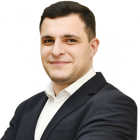

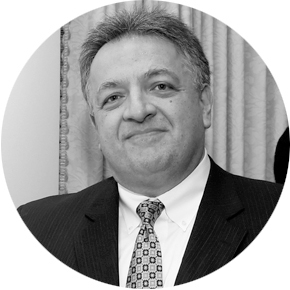

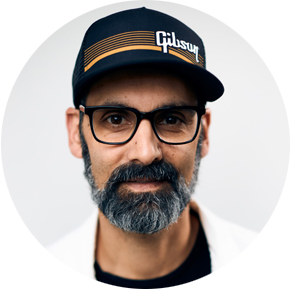
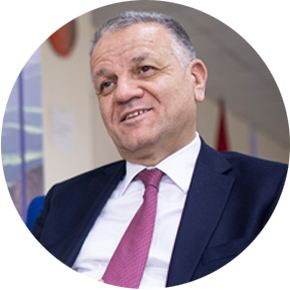
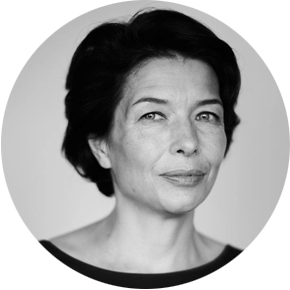





Comments
Dear visitors, You can place your opinion on the material using your Facebook account. Please, be polite and follow our simple rules: you are not allowed to make off - topic comments, place advertisements, use abusive and filthy language. The editorial staff reserves the right to moderate and delete comments in case of breach of the rules.